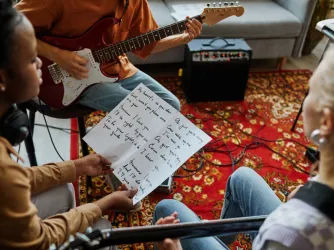Table of Contents
Peter Discusses 'Snyder v. Phelps' Decision in Latest 'PolicyMic' Column
In his latest column for PolicyMic, our own Peter Bonilla discusses the Supreme Court's recent decision in Snyder v. Phelps, and—the expression in the case itself aside—the positive implications the decision carries for freedom of expression on college campuses (which are, of course, FIRE's area of concern).
In Snyder, the Court upheld the United States Court of Appeals for the Fourth Circuit's overturning of a damages award against the Westboro Baptist Church for picketing at a military funeral from a distance. The Court, affirming decades of its jurisprudence on free speech, held that the First Amendment protects speakers, even when their speech is truly "outrageous," against tort liability for intentional infliction of emotional distress.
As Peter writes, this is a good thing for speech on the college campus:
Indeed, the threat that an adverse ruling would pose to the rights of America's college students is what motivated my organization, the Foundation for Individual Rights in Education (FIRE), to submit an amicus brief in Snyder, for if college administrators felt duty-bound to craft regulations prohibiting any "outrageous" speech on their campuses, whole classes of speech crucial to—even particular to—the college campus would suddenly be threatened.
[...]
If those engaged in protest activity were suddenly liable to be punished for its perceived "outrageous" nature, a key artery of discourse on campus would be ruptured. The days of the Free Speech Movement of the 1960s—stretching from Berkeley in the west to Harvard in the east—would cease to be a blueprint for political action and become the stuff of history lectures, at the end of which we'd be likely to say, "those were the days."
The Snyder decision is all the more important given the muddled state of free speech on campus these days. To quote more from Peter:
[A]s FIRE's research shows, 2 out 3 public universities [in our Spotlight database] maintain unconstitutional speech codes, and numerous universities maintain unconstitutional "free speech zones" that neuter the right to protest and to have one's message heard.
[...]
There is still much to be done to make our campuses safe for the kind of spontaneous, vigorous, and sometimes unpleasant debate one expects they would welcome. All the more reason, then, for this crucial affirmation of debate in an open society. For those who would speak loudly against the Phelpsians' message, the Supreme Court, in upholding their rights, has given opponents a powerful tool with which to do so.
Quite right. You can read Peter's column in full here.
Recent Articles
Get the latest free speech news and analysis from FIRE.

LAWSUIT: FIRE challenges unconstitutional provisions Rubio uses in crusade to deport legal immigrants over protected speech


Fiction is not a felony
